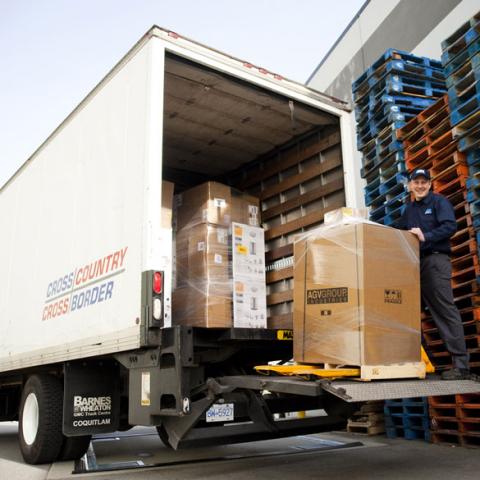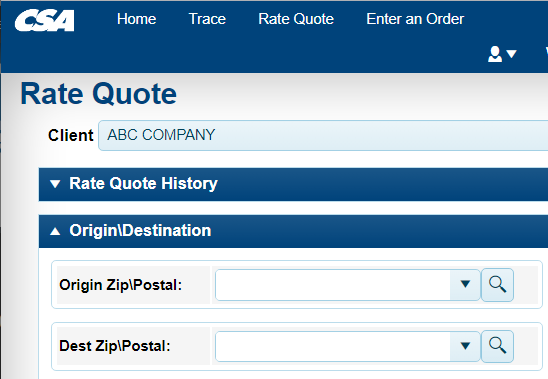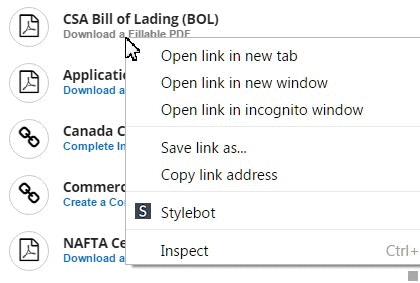What Does FOB Mean in Freight Shipping? (Plus FOB Cost Explained)
FOB is the acronym for “Free on Board” or “Freight on Board” and is an internationally recognized commerce term. If you need to buy or sell goods from another country everyone involved in your commercial transaction will know how to define FOB.
But here’s a thought, let’s hypothesize that you’ve sold goods to a client in another country. The deal has been closed and you’re happy with your FOB business transaction. You get in touch with your freight forwarder who will organize the shipping of your goods and all the paperwork involved. The collection date has been established and the carrier comes to your warehouse to pick up the order. So far, so smooth… the goods leave your warehouse but during the transit the goods, somehow, get damaged. They’ve left your premises but haven’t yet reached the client. Who is responsible for the damage caused? When and how do you establish that the ownership of the goods has transferred from you, the seller, to the buyer? How do you organize payment of fees? If there are additional costs along the route to the client, who pays them? The goods appear to be in a no-man’s-land while in transit because ownership appears hazy. The meaning of FOB can be defined within this scenario. If you use FOB Shipment Terms - the question of ownership is automatically resolved, as FOB determines who is responsible, at what point and outlines the risks involved.
So, FOB shipping is a legal way of deciding when exactly responsibility for goods is transferred. It settles any legal uncertainty or concerns regarding liability, possession and risk.
FOB Cost
FOB means that the price of the goods includes delivery to the buyer's location at a specific (pre-agreed location) which the seller pays for, after which time the onus is on the client to pay. FOB pricing is used for international shipments as well as domestic ones. It’s an ideal way to ensure that you are not left out of pocket in terms of shipping costs. Furthermore, the buyer can specify a different location (if the goods are not bought from their local country) – meaning they can be more flexible with location and transport to save time and money. Ultimately, the FOB price model allows the buyer to control their costs better as they know exactly how much it will cost them for the delivery of the goods.
How do you calculate FOB cost?
Calculating the FOB shipping cost is relatively straightforward and involves looking at several factors, such as the seller’s shipping costs, port fees, insurance costs, and any other charges associated with transporting the goods from one point to another. The main elements you need to calculate FOB pricing include:
- The cost of the goods
- Transportation costs for moving the goods from the seller’s warehouse to the buyer’s destination. This includes FOB charges, port fees, and any other additional costs associated with export/import regulations
- Insurance costs – this is an optional element but should be taken into account if there is a risk of goods being damaged in transit
- Additional FOB fees – VAT, customs duties and other applicable taxes may need to be calculated into the FOB cost as well.
Once all of these elements are taken into account, you can calculate the total FOB cost for a shipment. It is important to note that this cost can vary greatly depending on the shipping method and route chosen by the buyer. It is also important to keep track of exchange rate fluctuations that may affect the FOB cost. This could be particularly relevant when dealing with international shipments, as a change in currency value at any point during transit could have an effect on the overall cost.
Once you have calculated the price, you can use that amount as an FOB reference price in the future.
Who pays for FOB shipping?
The buyer is typically responsible for covering the cost of FOB shipping, meaning that the seller does not need to worry about additional costs associated with delivery. However, if there is a risk of goods being damaged in transit, it is important to factor this into the overall price and ensure that both parties are protected against any potential losses.
How does it affect the control of goods?
Now that you have a better understanding of FOB cost, let's take a closer look at its impact on the control of goods.
Free on Board shipping can be either “Origin” or “Destination”. When we refer to an FOB Origin, it means that as soon as the buyer pays, the carrier signs the Bill of Lading, and control (and ownership) of the goods is passed to the buyer. This means that any risks during transportation are his/her responsibility. Any claims for loss or damage to goods are the responsibility of the buyer. The other term, FOB Destination, means the opposite. The person selling the goods, and the original owner, retain ownership while the goods are in transit.
What is FOB shipping point?
FOB shipping point is a term used in international and domestic trade. It refers to the transfer of title or ownership of goods from seller to buyer, which occurs when the goods are shipped at the origin point of shipment. This means that all costs, risks, and responsibilities associated with the goods shift from one party to another once.
Shipping acronyms you should know
What does FOB mean? And COD? LTL? Adding acronyms to the already complicated and somewhat confusing shipping terms doesn’t really help!
Often the shipment term FOB is confused with the term “Freight Collect” – well, they both have the word “freight” and they both relate to shipping, right? But they have very different connotations.
FOB vs. FC
As explained above, FOB or Freight on Board, determines ownership of the goods. Freight Collect, on the other hand refers to who pays for the shipping… quite a different matter altogether! When Freight Collect is stipulated, freight charges are the buyer’s responsibility and payment can be made depending on the terms agreed with the carrier.
COD vs LTL
If C.O.D. is requested (Cash (or Collect) on Delivery) referring to payment on delivery, means that the buyer will hand over money to the trucking company or driver upon delivery. While COD is still widely used, it only refers to payment of the goods being delivered and doesn’t refer to shipping costs. (Of course, shipping costs can be included in the invoice by being added on to the price of the goods, this way the seller does not pay any extra costs). When COD is the acronym of choice for a delivery, the payment methods can also be specified, meaning that sometime cash only will be accepted, or other methods such as check or certified funds, depending on the agreement between the seller and the buyer. COD terms are beneficial when a seller doesn’t know the buyer, or when the buyer doesn’t want to risk paying for goods before they are delivered.
LTL on the other hand means Less than Truckload and does what it says. This term refers to smaller shipments, not requiring a full-sized container. The term FTL, on the other hand, refers to Full Truckload, meaning a full 20’ or 40’ container is filled and is usually used for inter-continental (across oceans) shipping.
Freight prepaid
Other terms within the shipping terminology include Freight Prepaid, when the seller is responsible for the freight. This payment won’t necessary be made to the carrier before pickup. They terms will be met by whatever contractual agreement exists between the carrier and the seller.
Third-Party billing
When Third Party Billing is specified on the Bill of Lading it means that neither the seller nor the consignee (buyer) is paying for the freight charges. An example of when this might happen where the seller does not send the order to the client from his establishment, rather, he buys the goods directly from his supplier who sends the goods directly to the consignee. In this case, the BOL would stipulate “Third party Billing”, if that was the agreement, and the actual seller (who has the contract with the buyer) would pay the carrier – not the supplier and not the end customer.
What about fob vs cif?
FOB stands for Free On Board and CIF stands for Cost, Insurance, and Freight. The difference between the two is that when a shipment is sent out as FOB, the buyer assumes the responsibility of goods once they reach the port of their destination. In comparison, with CIF shipping, responsibility transfers from the seller to the buyer once insurance has been paid for.
Choose CSA Transportation.
CSA Transportation is your source for professional shipping from U.S. to Canada. Contact our team today to learn how we can help your business!





